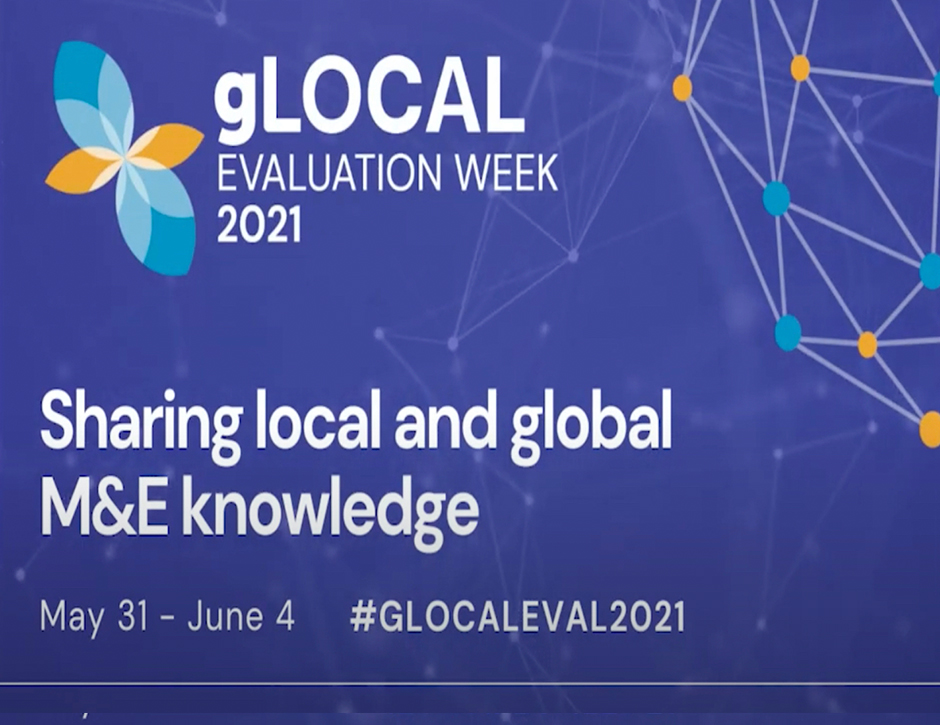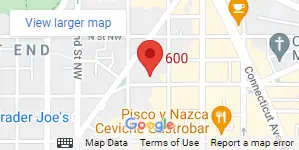
Amideast is taking advantage of this opportunity to organize three events that will allow our staff to share their experience and insights in program implementation and monitoring and evaluation from diverse perspective and their application to the MENA context.
The Amideast sessions, which will take place on June 1 and 2, will address these topics:
- The effectiveness of virtual and blended learning in English language instruction, based on Amideast’s experience of providing synchronous, asynchronous, and hybrid-model classes for young and adult learners in 10 MENA countries — a timely topic given the urgent shift to e-learning platforms in response to the COVID pandemic
- The importance of building organizational and programmatic capacities in monitoring, evaluation, accountability, and learning (MEAL) that are instrumental for the effectiveness, impact, and sustainability of programs
- The challenges of building sustainable programs, based on Amideast’s experience in creating disability centers at five Egyptian universities
gLOCAL Evaluation Week is an annual knowledge-sharing initiative that is convened by the Global Evaluation Initiative and partners. This year, the overarching theme is “Building Forward Better.” As a platform for evaluation knowledge-sharing and networking events, it will take place virtually around the world through simultaneous sessions.
gLOCAL Evaluation Week attracts a broad audience including academics, government officials, nonprofit and private sector representatives, evaluation practitioners, the general public, and students. Launched in 2019, the inaugural gLOCAL Evaluation Week took place with 177 M&E knowledge-sharing events in 38 countries. Last year, despite the COVID-19 pandemic, the fully virtual event grew to include over 250 events hosted by 188 institutions in 40 countries. The scope of this year’s gLOCAL week is expected to be even greater.
SESSION DETAILS
SESSION ONE: Monitoring and Evaluating Virtual Programs: What should we look at?
Event Type: Presentation
Target Audience: Academics, Nonprofit Organizers, Private Sector, General Public, Evaluation Practitioners, Students
When: June 1, 2021 03:00–4:30 pm (Cairo), 09:00–10:30 am (EST)
Presenters: Helena Simas, Regional Director of English Language Programs, Amideast; and Amal Nasralla, PhD, Regional Director of Monitoring, Evaluation, Accountability and Learning, Amideast
Session Summary:
Virtual and blended learning has become increasingly prominent in the educational landscape as a means of addressing the many challenges linked to accessible and equitable learning. Over the past year, many programs have shifted to virtual and blended delivery to comply with safety precautions posed by the pandemic. However, does the urgent need to shift to this distance learning mode affect the quality of learning and program effectiveness? Amideast has been concerned with this question since its English language programs across 10 countries went online in March 2019 — with synchronous, asynchronous, and hybrid-model classes for young and adult learners. Providing training to Amideast teachers on planning and delivering virtual and blended classes and orienting learners on the e-learning platform used in running these classes became needed steps in preparation for such a major shift. But the question regarding the quality of learning and effectiveness of these virtual classes remained unanswered. From an evaluation standpoint, there was a need to track certain online constructs for both learners and teachers to ensure that an acceptable level of program quality, efficiency, and effectiveness was achieved in this type of program. Consequently, Amideast designed a pilot study to monitor and evaluate a number of teaching and learning constructs perceived to affect the quality, efficiency, and effectiveness of virtual classes. In this session, the managers of this pilot study will share the methodology and tools used, as well as early insights about monitoring teachers’ readiness as they develop their competencies in planning and managing virtual classes, and about evaluating teaching and learning constructs that affect the quality of learning and program efficiency and effectiveness in virtual programs.
SESSION TWO: What organizational and programmatic capacities in Monitoring, Evaluation, Accountability and Learning (MEAL) are mostly needed for more effective, impactful and sustainable programs?
Event Type: Panel Discussion
Target Audience: Government Officials, Nonprofit Organizers, Private Sector, General Public, Evaluation Practitioners, Students
When: June 2, 2021 03:00–4:30 pm (Cairo), 09:00–10:30 am (EST)
Moderator: Leslie Nucho, Amideast Vice President for Programs
Presenters: Amal Nasralla, PhD, Regional Director of Monitoring, Evaluation, Accountability and Learning, Amideast; and Jennifer Smith, Country Director for Amideast/Tunisia
Session Summary:
Development programs that make substantial differences in the lives of their beneficiaries have become a necessity in a world that looks for meaningful incremental growth that contributes to a well-articulated theory of change. While external evaluations of development programs are looked upon for objective, non-biased assessment of programs' worthiness and value, building organizational and programmatic capacities in monitoring, evaluation, accountability, and learning (MEAL) is instrumental for programs effectiveness, impact and sustainability. Developing a programmatic understanding of what it takes to deliver results beyond program outputs, how impact takes place, what factors facilitate or impede program sustainability together with developing the needed capacities for putting this understanding into the program design, monitoring plans, evaluation tools, and sustainability-fostering interventions, are instrumental to development. Embarking on building programmatic understanding and capacities in MEAL, several questions are posed:
- What MEAL-related capacities should be developed?
- How could these capacities be best developed?
- Who should be accountable for ensuring MEAL capacities are well-placed within the program and the organization at large?
This panel discussion — organized and led by Amideast — aims to bring out some perspectives on the why and how of building organizational and programmatic capacities in MEAL, highlighting opportunities and challenges, and sharing several lessons learned in the process of building an institutional mindset and capacities in monitoring, evaluation, accountability, and learning.
SESSION THREE: Topic: Sustainability in Program Design and Evaluation: Establishing Disability Centers at Public Universities in Egypt
Event Type: Interview-style Presentation
Target Audience: Government Officials, Nonprofit Organizers, Private Sector, General Public, Evaluation Practitioners, Students
When: June 2, 2021 05:00–6:30 pm (Cairo), 11:00–12:30 pm (EST)
Presenters: Quincy Dermody, Chief of Party of the U.S.-Egypt Higher Education Initiative Public University Scholarship Program; and Dina Mohsen, Operation & Disability Program Manager at Amideast/Egypt; and Amal Nasralla, PhD, Regional Director of Monitoring, Evaluation, Accountability and Learning, Amideast
Session Summary:
Sustainability is a critical objective for many programs, but it is not always easy to achieve or evaluate. This session is a discussion of the process of designing a sustainability plan and evaluating its effectiveness for an activity establishing disability service centers at five public universities in Egypt. Through a conversation led by Amideast's regional director for MEAL with the Director and Manager of the HEI Public University Scholarships Program at Amideast/Egypt, Quincy Dermody and Dina Mohsen, a discussion will explore the sustainability of these centers, how has the program supported the centers to continue adding to the program outcomes and impact after the end of the program, successful strategies and challenges, and the likely outcomes and impact indicators we expect this sustainability model to foster. Questions will be welcomed at the end.
The Disability Service Centers are one component of the U.S-Egypt Higher Education Initiative (HEI) Public University Scholarships program, funded by USAID, supported by the Egyptian Ministry of Higher Education, and implemented by Amideast.
SESSION PRESENTERS
Our presenters bring expertise in three distinct areas of work in Amideast portfolio. In alphabetical order, they are:
Quincy Dermody, Chief of Party of the U.S.-Egypt Higher Education Initiative (HEI) Public University Scholarship Program
Quincy Dermody has over 17 years of experience in international education and development programs, primarily in MENA region. At Amideast/Egypt, she is currently the Chief of Party of the HEI scholarship program that includes an inclusion component—including scholarships for students with disabilities.
Dina Mohsen, Operation & Disability Program Manager, Amideast/Egypt and The U.S.-Egypt Higher Education Initiative Public University Scholarship Program's Disability Component
Dina Mohsen has more than 10 years of experience in project management and operations at medical and development programs. As the Operation & Disability Program Manager at Amideast/Egypt, she manages the disability component of the U.S.-Egypt HEI Public University Scholarship Program.
Amal Nabil Nasralla, PhD, Amideast’s Regional Director for Monitoring, Evaluation, Accountability and Learning
Dr. Amal Nasralla has a doctorate in assessment and evaluation from the United Kingdom. She has been working as a development specialist, senior M&E advisor, and lead consultant to international organizations. She has led, managed, and participated in several development programs, evaluation studies, and assessment projects.
LESLIE NUCHO, Amideast VICE PRESIDENT FOR PROGRAMS
Leslie Nucho oversees Amideast’s programs in the areas of English language, workplace/employability and professional skills training, education abroad, and institutional strengthening, and she provides senior oversight for the implementation of the organization’s monitoring and evaluation strategy. She has been active in the area of education and educational development in the MENA region for many years, including 26 years in her current capacity.
Helena Simas, Amideast's Regional Director of English Language Programs
Helena Simas works in 10 countries in the MENA region on program planning, project design, and quality assurance. She has over 30 years of experience in education in the areas of English language teaching, teacher training, trainer training, curriculum development, and program management.
Jennifer Smith, Country Director for Amideast/Tunisia
Jennifer Smith manages a variety of capacity-building programs for youth and civil society across Tunisia and Libya. She served as the Country Manager for an M&E consulting firm in Southeast Asia, conducting impact and process evaluations for clients such as the UN, World Bank, GIZ, and major INGOs.
To view recordings of the sessions, please follow these links:
Session 1: Monitoring & Evaluating Virtual Training Programs: https://youtu.be/G6tz4-mZfFw
Session 2: Building Organization MEAL Capacity: https://youtu.be/uLUE45GCOGw
Session 3: Sustainability in Program Design: https://youtu.be/EsDhECFpv5M

